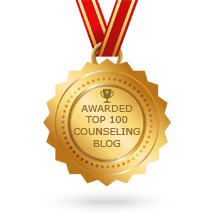Addiction
/Now more than ever, addiction is taking its toll all across the country and world. It seems impossible to turn on the television or pick up a newspaper without seeing another accident, injury or death attributed to mind altering substances. In Illinois alone, 5500 people die from the disease of addiction every year (http://www.dhs.state.il.us/page.aspx?item=31787). When I say that phrase, the “disease of addiction”, I sometimes get strange looks. I will get the familiar reply that addiction is a choice and that it’s easy to stop. Many will attribute addiction to moral failures in an individual or a lack of willpower. Scientists and medical professionals have made great strides in the last several decades in identifying addiction for what it is: a disease. It is not unlike other diseases such as diabetes or certain forms of cancer. Like other diseases, addiction can be attributable to many different factors, such as environment, life choices, genetic predisposition, and peer pressures. But at the end of the day, it doesn’t necessarily matter how an addict or alcoholic got the point they are at, the fact is that they are there. There are many ways that the symptoms of addiction can be treated and it’s best to “keep it simple”.
In my experience as an addiction counselor and therapist, it is difficult, if not impossible, to be successful in recovery if done alone. A therapist is a good first step, but ultimately, I insist on my client connecting with either a 12 step program (Alcoholics Anonymous, Narcotics Anonymous, etc.) or through other types of support groups. What addicts and alcoholics have known for almost 100 years is that talking with fellow addicts and alcoholics keeps them clean. Going further than that, many of these support groups emphasize a connection to one’s “higher power”. I have met with many people that decline to attend many support groups because they are not spiritual or religious people. What I discuss with my clients is that a higher power does not necessarily have to be based on religion or spirituality. A higher power is something or someone that is outside of yourself and something that helps you stay clean. I have known people to consider their pets, children and spouses to be their higher power.
Beyond that, an addict or alcoholic can work on boundaries, communication, accountability, and other factors that addiction often erodes in a person's life. Can a person cease to be an addict or alcoholic? Research shows that for the most part, that’s not possible. Contrary to what some flashy commercials will claim, science has shown that once you have the disease, you have it forever. Our goal is not to cure the disease, but to treat and manage the symptoms. Treating and managing the symptoms of addiction is what it means to be in recovery. Through treatment and hard work, you can become an addict/alcoholic in recovery and join the ranks of millions of people who have reclaimed their lives from this awful disease.
As a therapist, my job includes connecting clients to proper support style groups and services as well as education about these services. Further, education about the disease of addiction as well as learning about what triggers the client to use is incredibly helpful. Ultimately, the goal is for the client to learn coping skills that they can use when confronted with triggers and to maintain links to the recovery community. As many people in the recovery community say, “It works if you work it!”.








